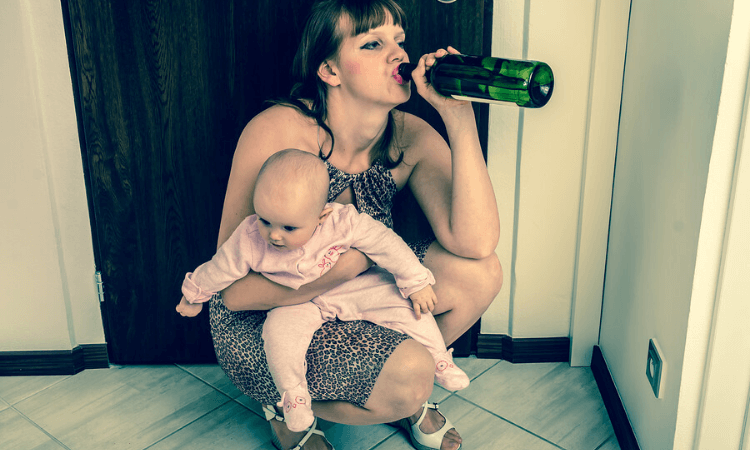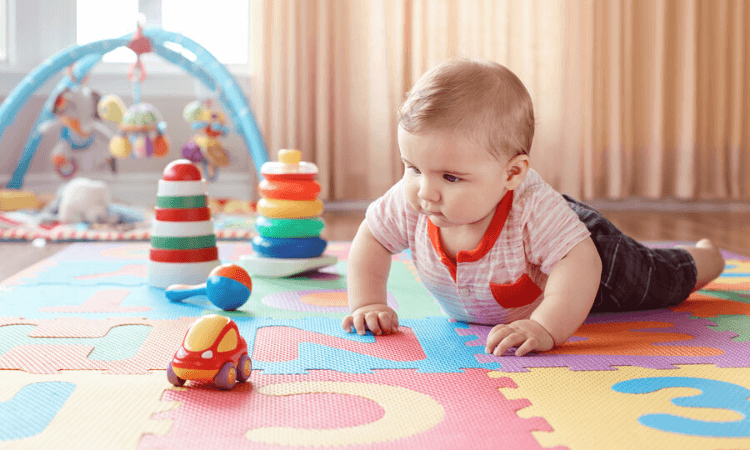
Alcohol and Breastfeeding: Is it Safe? – Drinking alcohol while breastfeeding is never advised. There is no “safe” level of alcohol in breast milk for a baby to consume. Studies have shown that infants who consume alcoholic milk may feed and sleepless often and exhibit poor motor coordination.
Alcohol and Breastfeeding Facts
When a woman drinks alcohol, it is transferred to her breast milk at concentrations comparable to those in her bloodstream. Although a breastfed baby is only exposed to a relatively small amount of the alcohol that the mother consumes, newborns clear alcohol from their bodies at a much slower rate than adults.
As long as there is alcohol in a lactating mother’s blood, the milk will also contain alcohol. Alcohol levels in both a mother’s blood and breast milk peak within 30-60 minutes of consuming the last drink. After this time, factors such as weight, food intake, and hydration can affect how long it takes for alcohol to clear her body.
To avoid harmful effects for the baby, a mother who breastfeeds should never consume alcohol—ever. If she does, she should not engage in breastfeeding for at least two hours after consumption. This waiting period could help to minimize alcohol levels in her milk as well as the risk for adverse effects.
What Is Pumping and Dumping?
“Pumping and dumping” is the practice of a woman pumping her breast milk and discarding it in some way. A woman may do this believing it removes the alcohol from her milk faster, but it does not.
It does, however, allow the woman to remove the milk from her breasts in a manner that will not affect the baby. This option may be a better one, but it is also an unfortunate and unnecessary waste of essential nutrients that could benefit the child. Moreover, there are good reasons why many women choose to breastfeed and prefer not to rely on formula.
How Can Alcohol Harm a Baby?
Studies have found changes in the sleep patterns of infants who breastfed from mothers who had consumed alcohol. Two studies revealed that, while the total amount of sleep was unchanged for infants after consuming alcohol-laden milk, sleep was divided into more frequent but shorter intervals, and they experienced less REM sleep. Another study found that the infants’ sleep was 25% shorter on average after drinking alcoholic milk.
Also, in 1989, researchers investigated the association of the mother’s use of alcohol during breastfeeding to an infant’s development at one year of age. It was found that motor development was significantly poorer in infants who were regularly exposed to alcohol in breast milk.

Myths and Alcohol’s Effects on the Milk Supply
Research has also found that breastfed babies may consume 20% less milk following a mother’s alcohol consumption. This decrease in feeding is not related to shorter feeding times or a change in the milk’s flavor. Instead, it has been attributed to the diminished amount of milk that a woman’s body produces after alcohol consumption.
The National Institute of Health reports that “nursing after 1 or 2 drinks…can decrease the infant’s milk intake by 20 to 23% and cause infant agitation and poor sleep patterns.” Although babies tend to drink less milk after the mother has consumed alcohol, these women often cannot recognize that there is a difference.
Women are taught in some cultures that drinking alcohol can increase a woman’s milk supply. Unfortunately, research has found that this is not the case. A report by the National Institute on Drug Addiction (NIDA) issues the following warning:
“…the lore of many cultures encourages lactating women to drink alcohol to optimize breast milk production and infant nutrition. In contrast to this folklore, however, studies demonstrate that maternal alcohol consumption may slightly reduce milk production.” They refer to drinking alcohol shortly before breastfeeding as “counterproductive.”
Alcohol and Hormones
Alcohol may influence a mother’s milk supply in two specific ways.
There are two pituitary hormones that are responsible for regulating the breastfeeding process: prolactin and oxytocin. Prolactin is released while the infant is suckling and stimulates the further production of milk. Oxytocin functions to contract the muscles around the mammary tissue of the breast to release the milk.
When babies consume less milk, less prolactin is released. Because a baby’s amount of suckling influences the amount of prolactin that is released, if the baby begins feeding less, the mother will produce less prolactin. This signal tells the body that the woman needs less milk for the baby, thus her milk supply will be reduced.
Studies have also found that alcohol consumption may interfere with oxytocin. This effect could further decrease the mother’s milk level and impair the infant’s ability to feed.
Studies conducted on lactating rats demonstrated that acute alcohol administration “significantly inhibited suckling-induced prolactin and oxytocin release as well as milk production and, consequently, the pups milk intake.”
The Bottom Line

The American Academy of Pediatrics advises that the best way to ensure a baby is not harmed by alcoholic breast milk is to avoid drinking while breastfeeding. But, for those who insist on imbibing, the important thing is to be aware of your alcohol intake and to avoid feeding alcoholic milk to your child.
Furthermore, the Centers for Disease Control and Prevention (CDC) confirm that “not drinking alcohol is the safest option for breastfeeding mothers” and that “exposure to alcohol above moderate levels through breast milk could be damaging to an infant’s development, growth, and sleep patterns.” The CDC also stresses that drinking alcohol in excess may “impair a mother’s judgment and ability to safely care for her child.”
Experts recommend planning ahead and not breastfeed a baby while consuming alcohol or soon after drinking. It can take several hours for a woman’s body to clear all the alcohol from her blood and milk supply. Conversely, a woman can pump and store her milk and feed it to the baby while she is drinking or after she has consumed a drink. The use of formula during this time is yet another option.
Of note, if you feel you have to go to great lengths in planning your drinking habits around breastfeeding, this could be a sign that you have an alcohol use disorder. The stress of having a child can compel some mothers to drink, or continue drinking, but this may not always be the responsible action to take.
Moreover, if you are often worried about what effects your alcohol use might have on your child, the stress alone is probably not worth it. It’s best to quit drinking entirely, at least while you are breastfeeding, and seek help if you feel you need to do so.
Getting Help for Alcoholism
If you find that you are struggling to stop drinking, you should consider seeking treatment for alcoholism. If you are a lactating mother in this situation, Recovery in Tune may be the perfect place to get help.
Our center offers outpatient treatment for those who need flexibility in their schedule to take care of their families. Our comprehensive programs include a wide range of evidence-based services, such as the following:
- Behavioral therapy
- Peer group support
- Aftercare planning
- Individual and family counseling
- Health and wellness programs
- Medication-assisted treatment
If you or someone you love is struggling with alcoholism, we urge you to contact us today and speak to one of our caring addiction specialists. We can provide you with the support, resources, and tools you need to overcome substance abuse. You deserve to be healthy, so allow yourself the opportunity to enjoy long-lasting sobriety and well-being.
We are dedicated to helping those who need it most to renew their hope and foster happy and fulfilling lives!